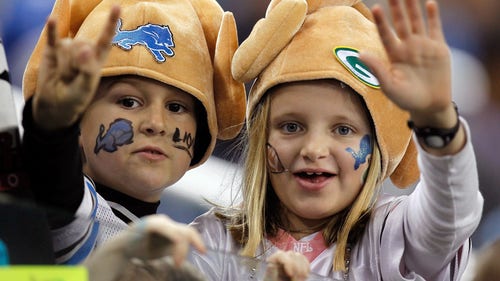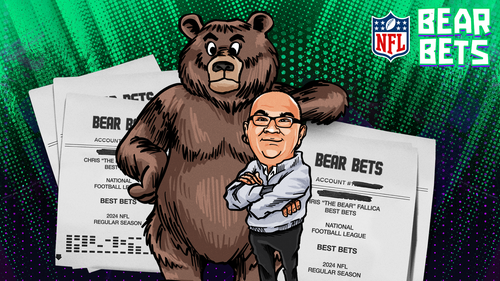
James White was the Super Bowl hero the Falcons didn't see coming
A common refrain over the past several weeks — and, really, for the past 16 years — is that Tom Brady can win with anyone.
Put any collection of appropriately sized and reasonably talented football players you want on the field, the thinking goes, and Brady, the greatest quarterback of all time, will find a way to make it work.
For the even staunchest New England hater, it’s a tough point to disprove, as Brady has completed passes to 33 different receivers in his seven Super Bowl appearances and has overcome seemingly endless turnover to lead five distinct groups of Patriots to titles since he entered the league, racking up four Super Bowl MVPs along the way.
But at a point, you’ve also got to give credit to the nobodies whom many dismiss as having ridden on Brady’s coattails, as well, because without them, the GOAT isn’t the GOAT. And on Sunday, in New England’s riveting 34-28 overtime win over the Atlanta Falcons in Super Bowl LI in Houston, Brady needed James White as desperately as White needed Brady.

If you’re now learning who White is, here’s a quick primer: New England scooped up the former University of Wisconsin running back in the fourth round of the 2014 draft, and for three seasons since, he’s been a bit player for the Patriots, at best.
Coming into Super Bowl LI, the 5-foot-9 White had never rushed for more than 26 yards in an NFL game and had two career rushing touchdowns to his name. He also had just four career games with more than five receptions and had gone over the 100-yard mark only once through the air, in December 2015.
In New England’s previous two playoff outings, White totaled one carry and four receptions, and in the Patriots’ last Super Bowl appearance, two years ago in Arizona, he was inactive. So you could forgive the Falcons if they figured it was safe to focus their attention elsewhere Sunday while trying to preserve a 25-point second-half lead.
But if there’s one thing to know about the Brady-Belichick Patriots, it’s that once you start to sleep on a guy, he becomes the most dangerous player on the field. And White filled that role perfectly, as he hauled in a Super Bowl-record 14 passes for 110 yards and a touchdown, scored on a critical two-point conversion in the fourth quarter and carried the ball six times for 29 yards and two scores on the night, including the overtime game-winner.
It was a truly stunning performance from a guy who became the fourth different player -- and the first since Terrell Davis 19 years ago -- to score three touchdowns in a Super Bowl, and in a different world, he, not Brady, would have been the game’s MVP. But given New England’s history in championship games, perhaps White’s breakout night shouldn’t have come as such a surprise.
In Super Bowl XXXVI, Brady’s first, it was little-used running back J.R. Redmond -- New England’s eighth-leading receiver and fourth-leading rusher that year -- who made his only three catches of the night to kick-start the Patriots’ game-winning drive. In each of Brady’s next two Super Bowl wins, linebacker Mike Vrabel caught second-half touchdown passes to put his team ahead.
Then two years ago in Glendale, it wasn’t an unheard of offensive player but Malcolm Butler, an undrafted rookie cornerback, who preserved the Patriots’ win with a goal-line interception.
It certainly helps to have an unflappable pro like Brady to lead the Patriots to the precipice of a championship, of course, but as we’ve learned time and time again, it’s often an unsung hero who puts them over the top once they get there. Because when you’re playing New England, it’s not Brady who’s ultimately going to be your undoing — it’s the guy you never saw coming.
“It’s preached to this team every single day,” White said on the FS1 postgame show. “One week you may play five snaps, one week you may play 80. So, I mean, you’ve got to always be ready. My number was called, and I just wanted to answer it, no matter whether it’s catching the ball, blocking, running the ball. I just wanted to do whatever it took.”
To paraphrase the late Roddy Piper, just when you have the answers, New England changes the questions. And that, more than anything, is the definition of the Patriot Way.










